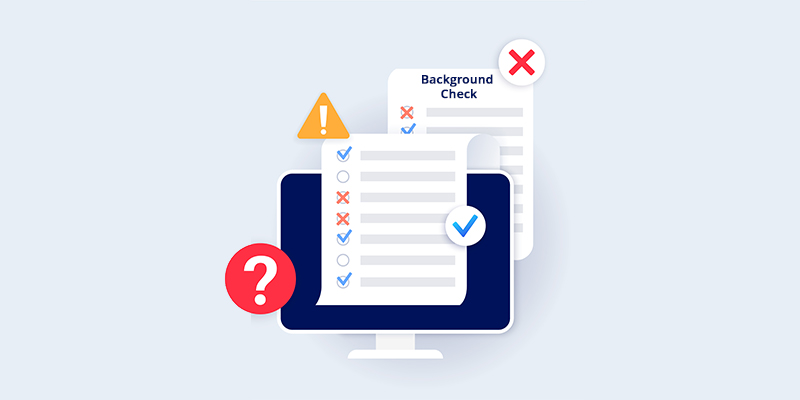Timing of an Adverse Action Notice: FCRA Compliance

To remain FCRA compliant, consider the following timing for sending adverse action notices.
Adverse Action Notification Timing
What are Pre-Adverse Action and Adverse Action Notices?
To begin, we must first uncover the differences between pre-adverse action notices and adverse action notices. Adverse action is defined as any negative decision based on a request from an applicant. This negative decision could be a denial of credit, employment or an application for rental of housing due to the results of a background check or information revealed in the applicant's consumer report. With that in mind, a clearer definition of "pre-adverse" versus "adverse" is obvious. Pre-adverse action notices are a notification to the applicant that adverse action is being considered. Adverse action notices reveal that a negative decision has been made.
What Should be Included in Pre-Adverse and Adverse Action Notices?
According to Section 604 of the Fair Credit Reporting Act, no action can be taken against an applicant until they have been provided a copy of their consumer report. There should also be a written summary, known as a Pre-Adverse Action Letter, detailing the potential adverse action and what information lead to the decision. The applicant will be provided a copy of their rights under the FCRA and allowed time to dispute the findings of the report.
Section 615 of the FCRA specifies that a second notice, called an Adverse Action Letter, must also be issued to the applicant, in writing, as notification that an adverse action has been taken. The applicant must be informed that the adverse action is based on information found in a consumer report or background check and they will have had time to dispute any findings as specified in the pre-adverse action notice. The Adverse Action notice must also include the following:
- Contact information for the reporting agency that provided the consumer report
- Statement that the consumer reporting agency is not the party taking the adverse action and cannot supply reason for the adverse action
- Notice of the applicant's right to obtain a second report, free of charge, from that same consumer reporting agency within a time period not to exceed 60 days
- Notice which informs applicant of their rights under the FCRA including the right to dispute the information contained in the consumer report, relative to accuracy and completeness
Timing of Adverse Action Notices
After receipt of the consumer report, the pre-adverse action is to be sent within three (3) business days. The applicant will then have the ability to dispute any report findings. The FCRA dictates the applicant should be given a "reasonable period of time" to raise any disputes. There is no specific amount of time mentioned in the FCRA but a best practice is to allow 5 business days for the applicant to review and respond. If the applicant does not dispute the pre-adverse action, an adverse action notice can be sent within 5 business days from the date of the pre-adverse action. Failure to comply with FCRA rules can lead to litigation and penalties.
Why Do Applicants Need Adverse Action Notices?
Applicants do need to be made aware of potential adverse action or negative consequences based on information contained in their consumer report or background check. If they have been denied credit or required to pay a higher interest rate or additional security deposits, if they have missed out on employment or promotion, or if they have been denied rental housing, the decision greatly impacts their livelihood. There is the potential of inaccurate reporting in background checks and it's up to the consumer to ensure a reliable report. Pre-adverse and adverse action notices can prompt consumers to check their own reports which benefits them in the long run.
Share this
You May Also Like
These Related Stories

What to Expect on an FCRA Compliant Background Report

Is Your Business Working with a Real Consumer Reporting Agency?

